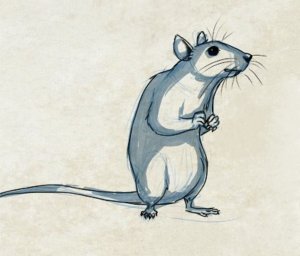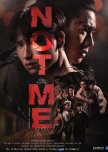Esta resenha pode conter spoilers
Be Gay, Do Crime, Change The World
Yeah so I think this show permanently broke something in my brain and I have absolutely no regrets. Its reputation as a masterpiece is well-deserved; from the cinematography, to the music, to the acting... it's all absolutely fantastic.
Gun is obviously brilliant as both Black and White, but I would like to give a special shout-out to literally everyone else on the cast - they all deliver absolutely devastating performances that genuinely left me breathless on occasion.
The story is a perfect blend of action thriller, political commentary, and queer romance which feels suspenseful, believable, and thoughtful all the way through without ever becoming repetitive or preachy.
It addresses power struggles, systematic exploitation, oppression, and the politics and logistics of revolution unflinchingly and highlights the practical and moral complexities of these issues.
Even non-violent retaliation against an oppressor can have far-reaching and often harmful consequences for the people being oppressed.
Solidarity and community are one of the most powerful tools for enacting change.
Art and satire as acts of rebellion can be both entirely inconsequential and immeasurably impactful.
Revolution often cannot happen peacefully, change demands chaos and force.
In other words, Nuchy went straight for the jugular with this show, and to devastating effect.
My personal favourite thing about the show, and I think perhaps one of the main reasons it has resonated so strongly with so many people, are the strong themes as of art as a vehicle for change and revolution woven through the story.
Eugene's dancing, Namo's murals, the protesters' songs, Unar's street art, Yok's Proletariat Expressionism showcase (which was an absolute punch to the gut for me personally and made me want to jump up and race to the nearest art museum) ... the ways in which the series showcases art as rebellion are myriad.
But the most impactful of them all is clearly Unar and Yok's storyline. Not only is it beautifully told and deeply emotional, it also lends a lot of depth to the show's uncompromising ACAB stance by showcasing the fallacy of trying to change a corrupt system from the inside out and how oppressive power structures can do almost as much harm to those they benefit as to those they exploit. A sort of nuanced "the patriarchy hurts men too"-type look into police brutality, which I personally appreciate greatly, even if I do wish they had explored this subplot and topic more in-depth.
In short this show is, unironically, a revolutionary work of queer cinema which, while it is not entirely without flaws, is more than worth your time. I highly encourage anyone who hasn't seen it to go and watch it right now.
Gun is obviously brilliant as both Black and White, but I would like to give a special shout-out to literally everyone else on the cast - they all deliver absolutely devastating performances that genuinely left me breathless on occasion.
The story is a perfect blend of action thriller, political commentary, and queer romance which feels suspenseful, believable, and thoughtful all the way through without ever becoming repetitive or preachy.
It addresses power struggles, systematic exploitation, oppression, and the politics and logistics of revolution unflinchingly and highlights the practical and moral complexities of these issues.
Even non-violent retaliation against an oppressor can have far-reaching and often harmful consequences for the people being oppressed.
Solidarity and community are one of the most powerful tools for enacting change.
Art and satire as acts of rebellion can be both entirely inconsequential and immeasurably impactful.
Revolution often cannot happen peacefully, change demands chaos and force.
In other words, Nuchy went straight for the jugular with this show, and to devastating effect.
My personal favourite thing about the show, and I think perhaps one of the main reasons it has resonated so strongly with so many people, are the strong themes as of art as a vehicle for change and revolution woven through the story.
Eugene's dancing, Namo's murals, the protesters' songs, Unar's street art, Yok's Proletariat Expressionism showcase (which was an absolute punch to the gut for me personally and made me want to jump up and race to the nearest art museum) ... the ways in which the series showcases art as rebellion are myriad.
But the most impactful of them all is clearly Unar and Yok's storyline. Not only is it beautifully told and deeply emotional, it also lends a lot of depth to the show's uncompromising ACAB stance by showcasing the fallacy of trying to change a corrupt system from the inside out and how oppressive power structures can do almost as much harm to those they benefit as to those they exploit. A sort of nuanced "the patriarchy hurts men too"-type look into police brutality, which I personally appreciate greatly, even if I do wish they had explored this subplot and topic more in-depth.
In short this show is, unironically, a revolutionary work of queer cinema which, while it is not entirely without flaws, is more than worth your time. I highly encourage anyone who hasn't seen it to go and watch it right now.
Esta resenha foi útil para você?


 1
1



